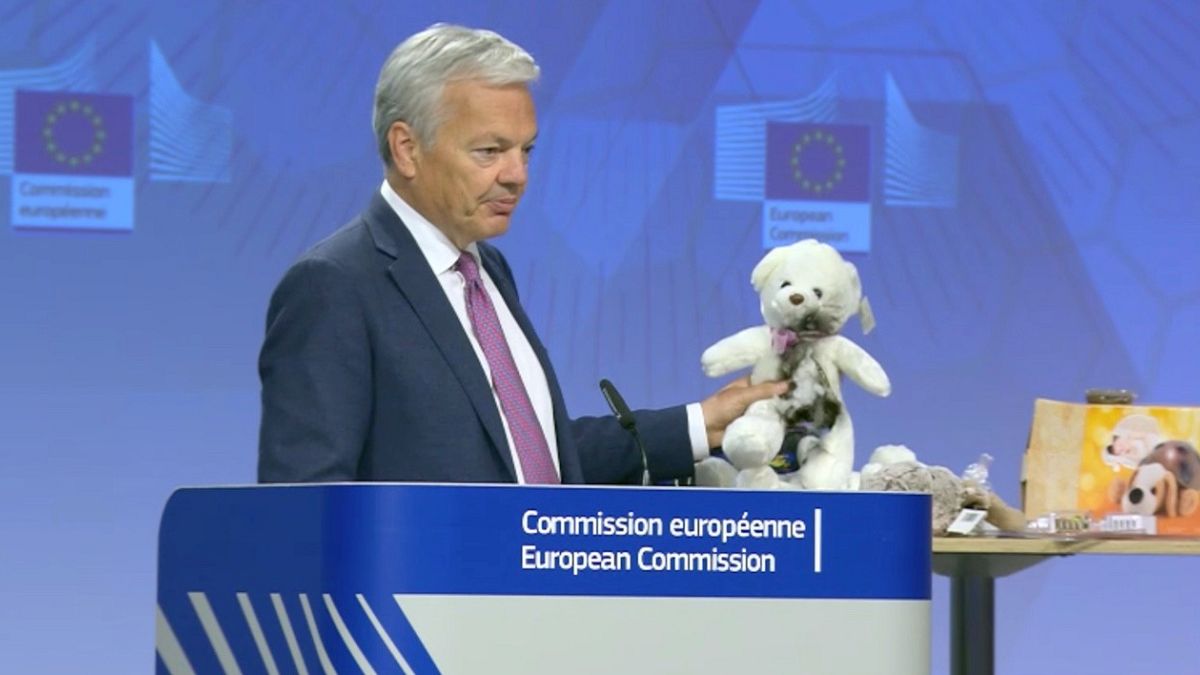Children's toys, including toy cars with batteries that presented a choking hazard, teddy bears that sent out electric shocks and slime toys, were most often identified by the Rapid Alert System.
The EU's warning system for dangerous products saw action taken on a record number of potentially harmful goods in 2019, according to a European Commission report.
Children's toys, including toy cars with batteries that presented a choking hazard, teddy bears that sent out electric shocks and slime toys, threw up the most alerts.
Cars, household electric appliances and cosmetics were also among the products that were identified.
The system also saw COVID-related products identified and tested, such as gloves, alcohol gels, and masks.
The most notified risks related to a product causing injuries like fractures or concussions, while chemical components in products were the second most frequently flagged concern, followed by risks of choking for children (13%).
Authorities from EU countries, as well as the UK, Norway, Iceland and Liechtenstein, exchanged 2,243 alerts on dangerous products through the system, which prompted 4,477 follow-up actions — an increase of 10% from 2018 and 63% since 2015.
Notifications led to products being withdrawn or destroyed by distributors and retailers before they reached consumers as well as the recall of unsafe items.
"The system is working and the system is working well," Didier Reynders, European Commissioner for Justice, said at a press conference.
"In a single market shared by 450 million consumers there is always a risk of a dangerous product from one member state finding its way into the hands of a small child in another," but added the system helped to prevent this.
He said the single market was one of the bloc's "greatest achievements" and that authorities "must leave no stone unturned in keeping it safe".
While the UK currently participates in the sharing of such information, this may not be the case when the Brexit transition period ends on December 31, 2020.
On whether the UK would have access to the system, EC spokesperson Christian Wigand told Euronews: “If the UK would want to be a member of Rapid Alert System in the future, the EU would need to assess if the UK meets the legal conditions to have access to the Rapid Alert System as a third country.
"In particular, an effective participation in the Rapid Alert System network is only possible if the corresponding EU laws are incorporated in UK legislation. The UK's access to the Rapid Alert System would need to be based on an international agreement.”












